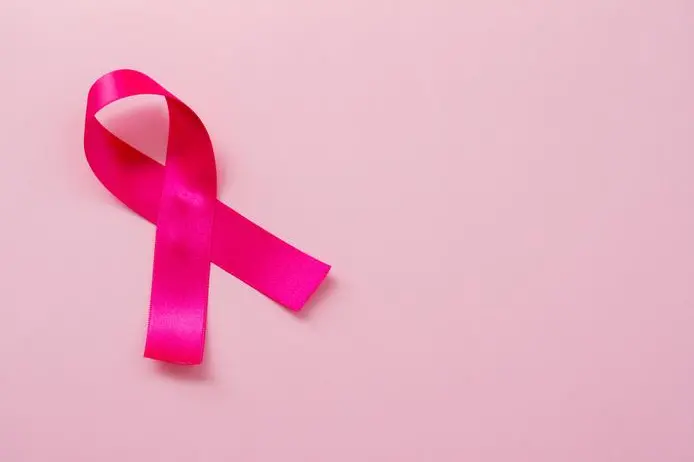PHOTO
Health experts and advocates are painting the town pink throughout this Breast Cancer Awareness Month - and early detection remains to be the key message.
According to the World Health Organisation (WHO), breast cancer is the most common cancer affecting women, with around 2.1 million diagnosed each year. Men can suffer from it, too, in relatively rare cases.
It has also been seen as the cause of the highest number of cancer-related deaths - but the thing is, if it is detected early enough, chances of survival can go as high as 98 per cent.
Experts are highlighting the importance of regular self-examination and knowing the signs to watch out for.
Dr Vanesha Varik, specialist laparo and general surgeon at Aster Hospital Mankhool, said: "One of the symptoms of the cancer is a lump in the breast, usually hard and fixed. Most of the time, this lump is painless and, sadly, that is also why many patients report it late."
Changes in the nipples must also be noted, including retraction and abnormal and blood-stained discharge. Skin changes on the breast - such as dimpling, puckering or appearing like orange peel, called 'peau de orange' - are another symptom.
It is advisable to conduct the self-check every month after a menstrual cycle. And once a woman reaches 30 years old, yearly clinical breast examinations with a surgeon are recommended.
Risk factors
Dr Stephen Grobmyer, chair of Oncology Institute at Cleveland Clinic Abu Dhabi (CCAD), said: "The exact cause of breast cancer has not been established yet, but there are risk factors that may play a role.
"Those most at risk are women over the age of 50, particularly those with a family history of the disease. Being a carrier of a familial breast cancer gene also puts a person at greater risk. Despite being considered a women's disease, breast cancer can also affect men."
Genetics is the cause in five to 10 per cent of cases, another doctor explained.
Dr Dima Abduljabbar, consultant oncologist at American Hospital, said over 90 per cent of cases are attributed to mutation, history of radiation, and many other reasons.
Once the cancer is detected, a range of treatment options are offered depending on how advanced the cancer is.
A surgery is often recommended to remove the tumour, and in many cases, the complete removal of the breast is not required.
"In the UAE, we have all kinds of treatment available, ranging from hormonal to immunotherapy, targeted therapy, as well as chemotherapy. We also have a special machine that will allow patients to keep their hair," said Dr Abduljabbar.
Copyright © 2019 Khaleej Times. All Rights Reserved. Provided by SyndiGate Media Inc. (Syndigate.info).





















